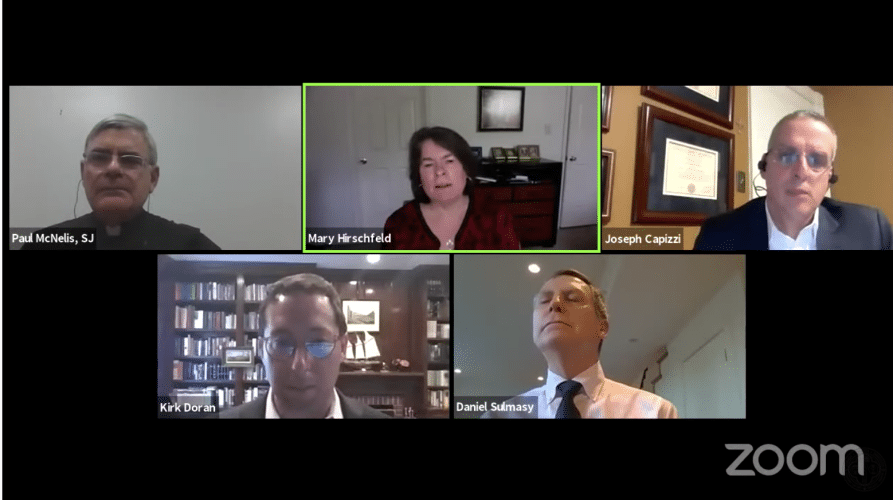The need to bring civility and insightful Catholic perspective to public discourse on current social events has led to the creation of a new series on Economics & Catholic Social Thought, organized jointly by the Lumen Christi Institute and CREDO, the Catholic Research Economists Discussion Organization.
“There were really two inspirations for the series, which started with some panels on COVID-19” in May, said Joseph Kaboski, CREDO president. “The first was the (COVID) situation. There were the beginnings of debate over lives versus livelihoods, but no one had brought a Catholic perspective to the conversations. Then, we realized there was a lot of interest, and these virtual panels were easier to put on and easier for people to access, so we decided to make it a series.”
The first webinar argued in favor of ending stay-at-home orders for the pandemic, saying that the poor and vulnerable were bearing the greatest burden of the economic damage done by the lockdown.
The second webinar urged Americans to move past the health-wealth dichotomy when evaluating the management of the pandemic. Scholars argued in favor of a more robust view of health, one that not only values freedom from disease, but also considers the importance of social interaction, work, productivity, and human relationships. The panel included Fr. Paul McNelis, SJ, Mary Hirschfeld, Joseph Capizzi, and Dr. Daniel Sulmasy.
The third webinar in August included an international group of scholars — Jeanne Lafortune, Sergio Rebello, and Fr. Paulinus Odozor, CSSP, a Spiritan Father originally from Nigeria — who spoke on the global aspects of the pandemic.
In addition to sharing Catholic intellectual thought on current issues with the general public, Kaboski said the new series makes two important contributions.
“First, the quality, honesty, and civility of discourse has certainly been trending down for quite some time, and this series brings serious academics from different disciplines to have real conversation about important public issues,” he said. “Second, and probably related, bringing religious faith to public discourse is increasingly difficult, but it is also increasingly important.”
The new series will continue in December, with a shift in focus away from the pandemic. The panel will discuss food insecurity. Topics for other panels will include Catholic education, the future of work, and the family. Kaboski said CREDO, which grew out of Lumen Christi’s annual conferences for economists, theologians, and Church leaders, has been collaborating with the Institute since CREDO’s founding in 2013, namely with Lumen Christi’s summer seminars on Catholic Social Thought. However, yet another collaboration between the two began recently — a monthly, small-group, online seminar with scholars from across the globe, said Kaboski.
“Lumen Christi brings a strong connection to Catholic scholars from many fields and good organizational capacity,” he said. “CREDO brings connection to leading economists interested in the conversation, so it is very complementary.”
